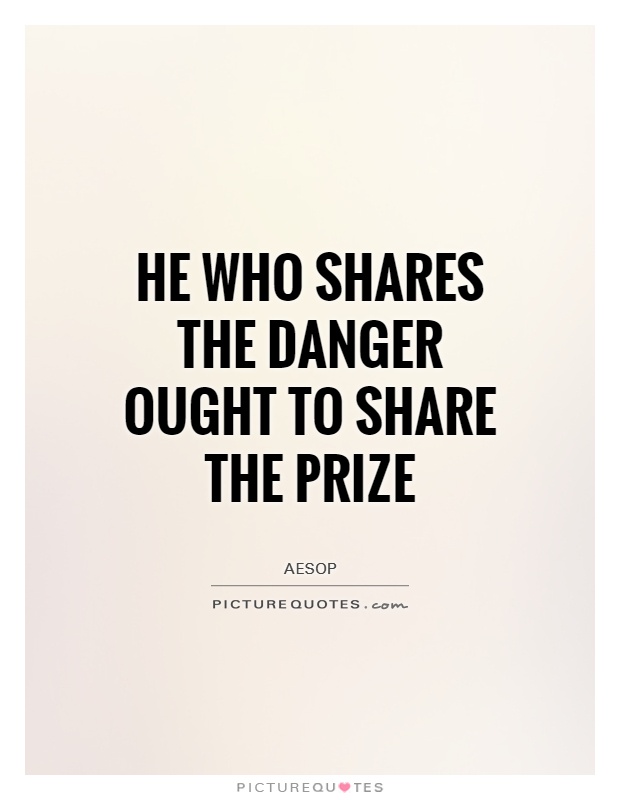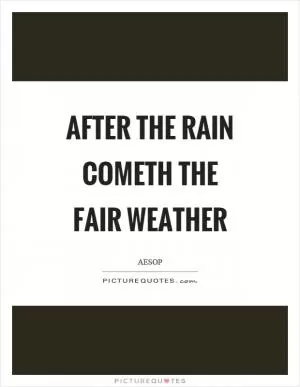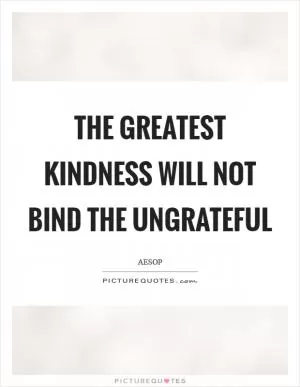He who shares the danger ought to share the prize

He who shares the danger ought to share the prize
Aesop, the famous ancient Greek storyteller, is known for his fables that often contain moral lessons and wisdom. One of his most well-known fables is "The Lion and the Mouse," which teaches the importance of kindness and gratitude. In this fable, a lion spares a mouse that had previously helped him, and later the mouse returns the favor by freeing the lion from a trap. This story illustrates the idea that even the smallest creatures can make a big difference and that kindness should be repaid.The phrase "He who shares the danger ought to share the prize" can be seen as a reflection of this moral lesson. It suggests that those who take risks or face challenges together should also share in the rewards or benefits that come from those efforts. In the context of Aesop's fables, this idea can be applied to the relationships between characters who work together to overcome obstacles or achieve a common goal.
For example, in the fable of "The Ant and the Grasshopper," the ant works hard all summer to gather food for the winter, while the grasshopper spends his time singing and playing. When winter comes, the grasshopper is left hungry and cold, while the ant has more than enough food to survive. The ant could have easily shared his food with the grasshopper, but because the grasshopper did not share in the danger of preparing for winter, he does not share in the prize of having enough food.
This fable demonstrates the importance of working together and sharing responsibilities in order to achieve success. It also highlights the idea that those who contribute to a common goal or face challenges together should be rewarded equally. Just as the ant and the grasshopper each faced the danger of winter in their own way, they should also share in the prize of survival together.
Overall, the phrase "He who shares the danger ought to share the prize" reflects the themes of teamwork, cooperation, and fairness that are often found in Aesop's fables. It serves as a reminder that those who work together and support each other should also share in the rewards of their efforts.












 Friendship Quotes
Friendship Quotes Love Quotes
Love Quotes Life Quotes
Life Quotes Funny Quotes
Funny Quotes Motivational Quotes
Motivational Quotes Inspirational Quotes
Inspirational Quotes